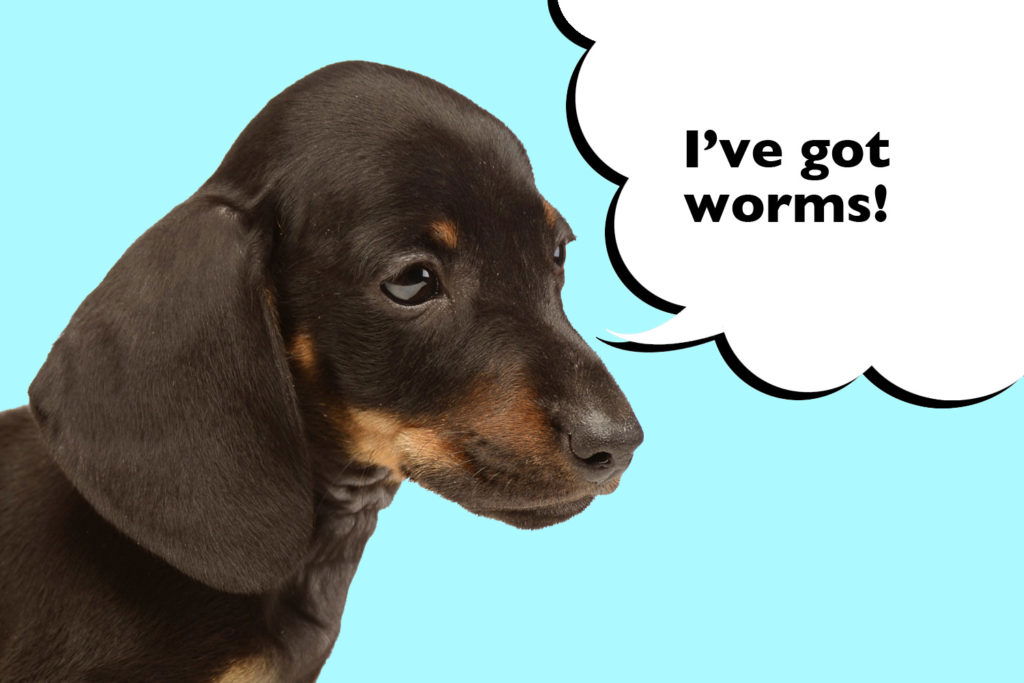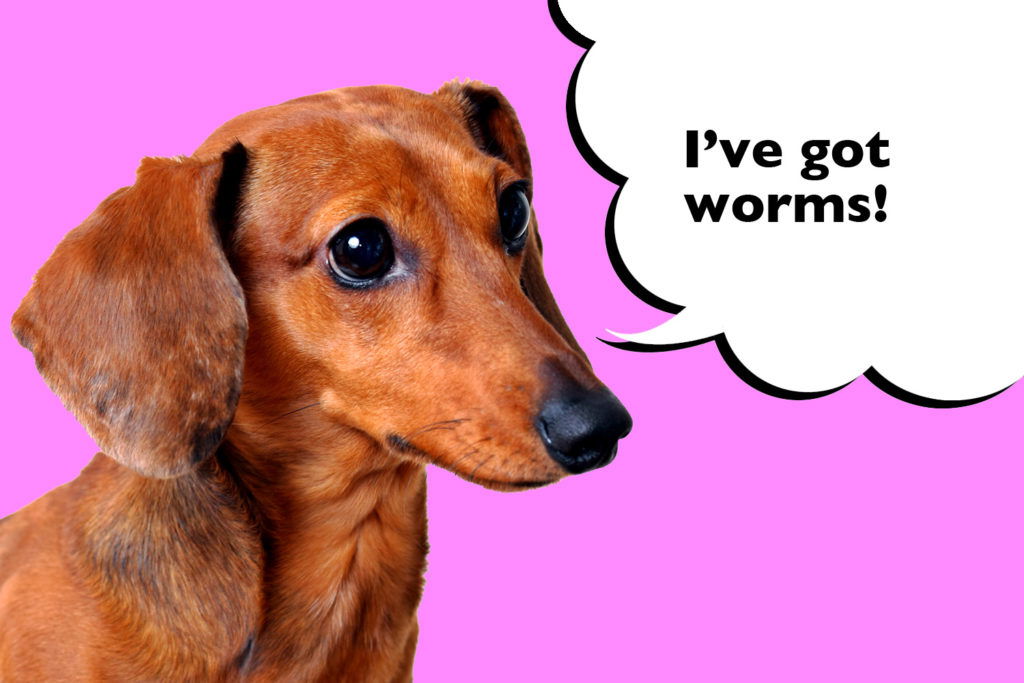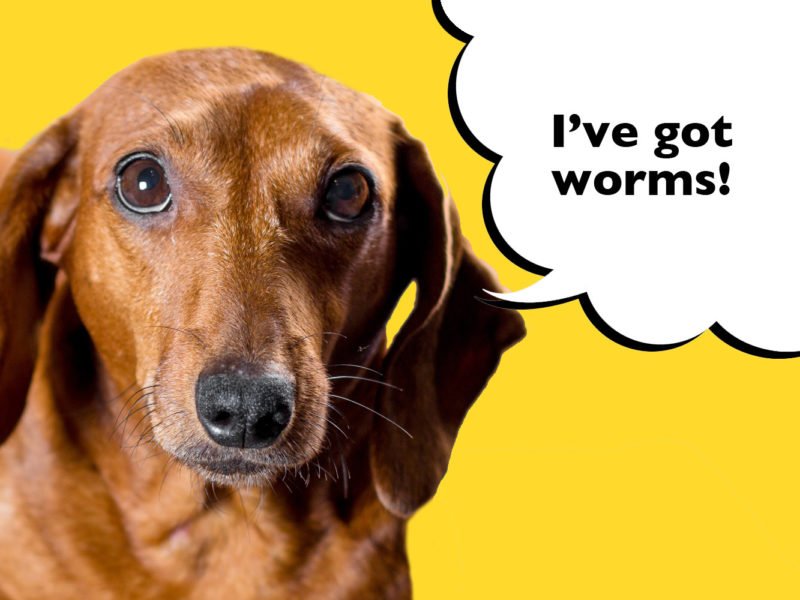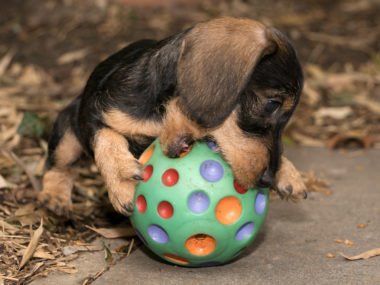Are you worried your Dachshund might have worms? Do you want to know what symptoms of worms to look out for? Here’s everything you need to know about Dachshunds and worms!
How Do I Know If My Dachshund Has Worms? Your Dachshund may show physical symptoms of worms such as rubbing his bum along the floor, coughing, wheezing, diarrhoea, vomiting, or lethargy due to anaemia. You may also see worms or worm eggs in his stool that look like grains of white rice.
Read on to find out what the main symptoms of worms in Dachshunds are, how Dachshunds get worms, and how to prevent infestations from happening.
Table of Contents
- What Are The Symptoms Of Worms In Dachshunds?
- How Do Dachshunds Get Worms?
- What Different Types Of Worms Can Dachshunds Get?
- Can Worms Affect A Dachshund’s Health?
- How Do I Treat My Dachshund For Worms?
- How Can I Prevent My Dachshund From Getting Worms?
- Can My Dachshund’s Worms Spread To Humans?
- What do I do next?
This article is based on research and personal experience as a Dachshund owner of 10+ years. I’m not a Vet, qualified dog trainer or dog behaviourist.
What Are The Symptoms Of Worms In Dachshunds?
Worms are a type of parasite that are commonly found in most breeds of dog.
Here are the main signs of worms in Dachshunds:
Coughing or wheezing
Your Dachshund might cough and wheeze regularly if he has worms. Watch out for signs that his breathing is affected.
Upset stomach
Your Dachshund might show signs of stomach pain. He may be off his food, or uncomfortable with you touching his tummy.
Your Dachshund may even show aggression or fear if you try to touch his stomach.
Diarrhoea
Your Dachshund might get diarrhoea if he has worms. The diarrhoea often has blood in it and this suggests the worms are causing your Dachshund to bleed internally.
Bloated belly
Your Dachshund might also have a visibly bloated belly if he has worms.
White worms in your Dachshund’s poo
Worms are often a visible problem. They can usually be seen in your Dachshunds poop. Worms are stringy and white and worm eggs look like grains of rice.
Worms on your Dachshund’s fur
You might also be able to see worms around your Dachshund’s bum area. The worms will be small, long and white. Worm eggs will also look like grains of rice.
Vomiting
Your Dachshund might also start vomiting if he has worms. If your Dachshund is throwing up often without any clear explanation, he could have worms.
Weight loss
Your Dachshund may lose weight as a result of having worms. Tapeworms take the nutrients from your Dachshund’s intestines. So, even if your Dachshund is eating a lot of food, he could still lose weight.
Weakness
Weakness and lethargy is a common symptom of worms in Dachshunds because worms take away blood and nutrients.
Anaemia
As the worms feed off of your Dachshund’s blood and nutrients, this can also lead to your Dachshund becoming anaemic. This means that red blood cells decrease, making your Dachshund weak and lethargic.
Pale gums
Anaemia leads to paler gums than usual. Pale gums are another sign that worms are affecting your Dachshund’s red blood cell count.
However, some types of worm, most notably heartworm, can be difficult to detect.
Poor coat quality
Your Dachshund’s coat will look dry and dull and lose its shine and lustre. Poor coat quality os often a sign of ill health or worms.
Dragging bum along the ground
Your Dachshund might start dragging his bum along the floor to try and itch the area infected with worms.
If you notice any of these symptoms or have any concerns about your Dachshund’s health, contact your vet for advice. Your vet will analyse your Dachshund’s blood or stool to find out the cause of their illness.

How Do Dachshunds Get Worms?
Here are some of the most common ways your Dachshund can get worms:
Dachshunds might get worms from a mosquito
Mosquitoes can be infected with worm larvae. The worms can then be passed on to your Dachshund after he’s been bitten by a mosquito.
Dachshunds might get worms from fleas
Fleas can also be infected with worms. When fleas latch on to your Dachshund, they can pass on the worms.
Dachshunds might get worms from licking themselves
Your Dachshund can accidentally pick up worm eggs on his coat when he’s out and about in the world.
When he tries to lick himself clean, he could ingest these worm eggs which will then grow inside him.
Dachshunds might get worms from ingesting them outside
Worm larvae can be found outside in animal faeces, dead animals, soil and water.
You Dachshund might ingest the worm larvae when he’s sniffing around in the yard or garden or on walks.
Dachshunds might get worms from eating raw meat
If your Dachshund eats raw meat that’s infected with worms, it can pass the worms on to him.
Dachshund puppies might get worms from their mother
If your Dachshund is a puppy, it’s possible he could be infected with worms from his mother’s milk or saliva.
Worms can be passed on when puppies are in the womb, or when puppies are feeding from their mothers.
Dachshunds might get worms from another pet
Dachshunds can get worms by eating worm eggs or by coming into direct contact with worm larvae.
If another dog or pet has worms, it would be easy for them to pass the worms on to your Dachshund.
What Different Types Of Worms Can Dachshunds Get?
There are many different symptoms of worms, and there are also many different types of worms.
Here are the types of worms that your Dachshund might get:
Heartworms
Heartworms will be located in your Dachshund’s heart and can cause serious lung and heart problems.
Lungworms
Lungworms will be located in your Dachshund’s heart and blood vessels. Lungworm is likely to cause coughing and wheezing.
Tapeworms
Tapeworms will live in your Dachshund’s intestines and can cause serious problems for their organs.
Roundworms
Roundworms can also live in your Dachshund’s intestines and cause stomach-related symptoms.
Hookworms
Hookworms will also be located in your Dachshund’s intestines. Unfortunately, Hookworms cause symptoms related to anemia, as they ingest intestinal blood.

Can Worms Affect A Dachshund’s Health?
Yes, worms can have a very serious impact on your Dachshund’s health. Worms can lead to severe organ damage and even death if they’re left untreated.
How Do I Treat My Dachshund For Worms?
If your Dachshund has signs of worms, you need to take him to the vets.
The vet will give your Dachshund a check up to see if the worms have caused him any health problems.
You might be asked to bring a sample of stool so that the vet can identify the type of worms that your Dachshund has.
The vet will then prescribe a deworming medication for your Dachshund to get rid of the worms.
How Can I Prevent My Dachshund From Getting Worms?
It’s difficult to fully prevent your Dachshund from getting worms because they’re easily picked up in the outside world.
There are some ways to help prevent your Dachshund from being infected with worms.
However, some Dachshunds can have serious reactions to worming treatments, so you must do your research and speak to your vet for advice.
Here are the most common ways to prevent a Dachshund getting worms:
Use a dewormer
All dogs have worms, but dewormers have been designed to reduce the amount of worms your Dachshund has to stop them from getting out of control.
There are many deworming treatments available, but it’s best to speak with your vet to find out which one is right for your Dachshund.
Your vet will also be able to tell you how regularly to use the dewormer. Normally, it’s at least every 3 months but can be much more frequent than that.
The most important thing to remember is to deworm your Dachshund regularly as per your vet’s instructions.
Falling behind on treatments will put your Dachshund at risk of getting worms.
Use a flea treatment
Fleas can often carry worm eggs, so keep your Dachshund up to date with regular flea treatments from the vet.
Clean your yard or garden
Clean up any dog poop from your garden or yard immediately. If you have other animals, such as cats, rabbits or guinea pigs, make sure their poop is cleaned up too.
Clean your home
Clean the areas where your Dachshund eats and sleeps, and make sure you wash his food and water bowls daily and fill with fresh water.
Stop your Dachshund eating poop
Keep an eye on your Dachshund when he’s on walks or in the yard. Don’t let him go near animal carcasses or eat poop because it may be infected with worms.
Can My Dachshund’s Worms Spread To Humans?
Yes, your Dachshund’s worms can spread to humans. If your Dachshund licks you while he’s infected with worms, the worms can then be passed on to you.
That’s why it’s important to always wash your hands after touching or playing with your Dachshund. This is especially important for children who often put their hands in their mouths.
Roundworm and hookworm are the most common types of worm to be passed on to humans.
All types of worms can cause serious damage to people, so you must be careful to watch out for signs that you’re infected with worms.
So, there you have it! Worms are commonly found in Dachshunds. Most obvious symptoms are when your Dachshund starts rubbing his bum on the floor, if he has a bloated belly, diarrhoea, worms in his stool, or suffers from weight loss, pale gums, lethargy or vomiting. Worms are treatable, and your vet will help you deworm your Dachshund to get things back under control!
What do I do next?
If you read all the way to the end of this article, you’re exactly the sort of person I’d LOVE to join my Facebook Group. Your support for my blog means everything to me so, if you found this article helpful, please kindly share below. Thank you! 💋








